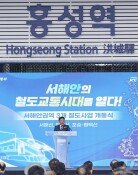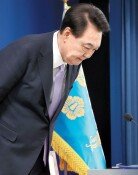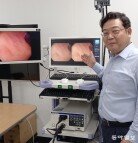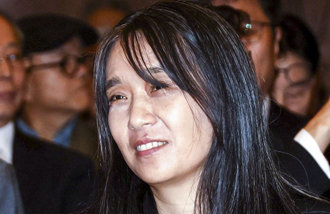China Will Try to Address Its Overheated Economy
China Will Try to Address Its Overheated Economy
Posted November. 27, 2007 06:17,
China has declared an all-out war against its bubble economy. The Chinese government will focus its energy on tackling its over-heated economy, soaring prices and asset bubbles by setting the three as its economic priorities.
However, some economists said, The sudden contraction of the economy can cause adverse effects including unemployment, signaling some possible fallout regarding the measures to cool down the economy.
Next Years Economic Policy-
The Chinese government, by convening a Central Economic Committee, will decide overarching themes for next years economic policies. The meeting will determine the basic economic policies of the second phase of the Hu Jintao administration (set to run from the end of 2007 to the end of 2012).
Hong Kong media outlets reported on Monday that the emphasis of next years Chinese economic policy would be placed on slowing down the overheated economy and preventing soaring prices stemming from rapid monetary expansion, the bubble in the stock market, and skyrocketing real estate prices.
The Chinese governments position is that 11.5% of this years expected economic growth following last years 11.1% shows that the economy is definitely overheated. The Chinese governments attempt to discourage excessive investment was of no avail with the investment on fixed assets rising 26.9% as of late October, 2007, a 2.6% increase year-on-year.
Currency in circulation of last month, which increased by 18.5% to 39.42 trillion yuan (4,992 trillion won based on M2) compared to last year, is another issue to be addressed. Over the same period, the hike is partly due to a sudden hike in agricultural produce by 6.5% compared to the year before, but the fundamental cause is an increase in prices caused by expansion of currency in circulation.
The stock market, which had gone up five times in the last 22 months before it took a nosedive by 20% over the past month, also needs to be reformed and corrected. Property prices in cities that go up by 10% a year need to be urgently addressed also.
Bubbles Hard to Take On-
Chinas economists are not optimistic, however, because new projects will come pouring in after a wholesale reshuffling of major government offices takes place at the National Peoples Convention due to be held next March. On top of that, investments for political purposes by local leaders that happen every five years will make the current situation worse.
A sudden cool down of the economy could trigger mass unemployment. Last year saw 11.84 million new jobs created, and in the first half of this year another 6.29 million jobs were created, meaning that every one per cent of economic growth adds around one million new jobs. When the growth rate goes down, that will also bring down the number of new jobs created.
One Chinese economy expert said, Chinas central government has raised the interest rate five times and raised the cash reserve ratio nine times this year but both very cautiously. Next years fiscal and monetary policies will be tightening measures while pursuing economic stability.
orionha@donga.com







